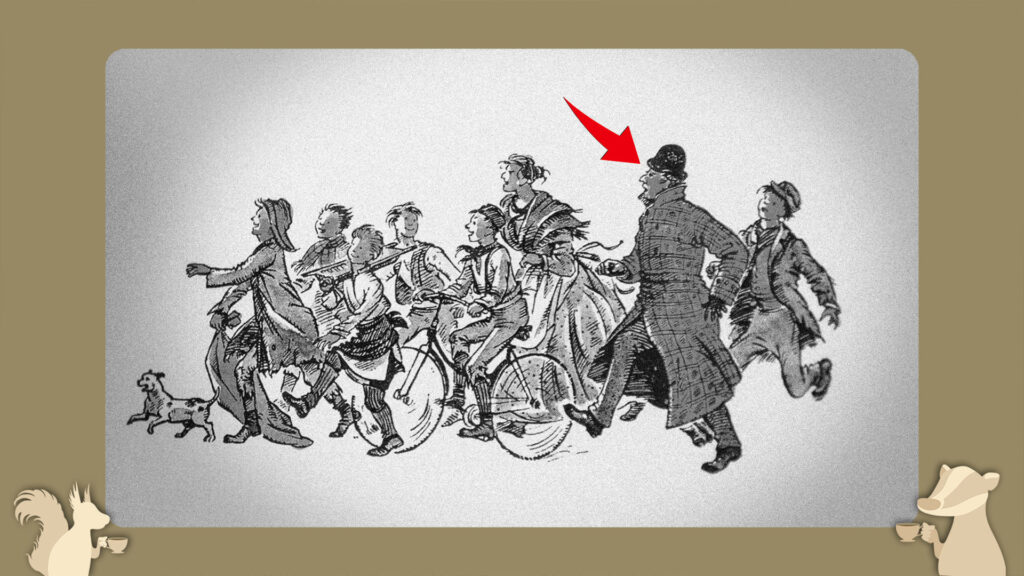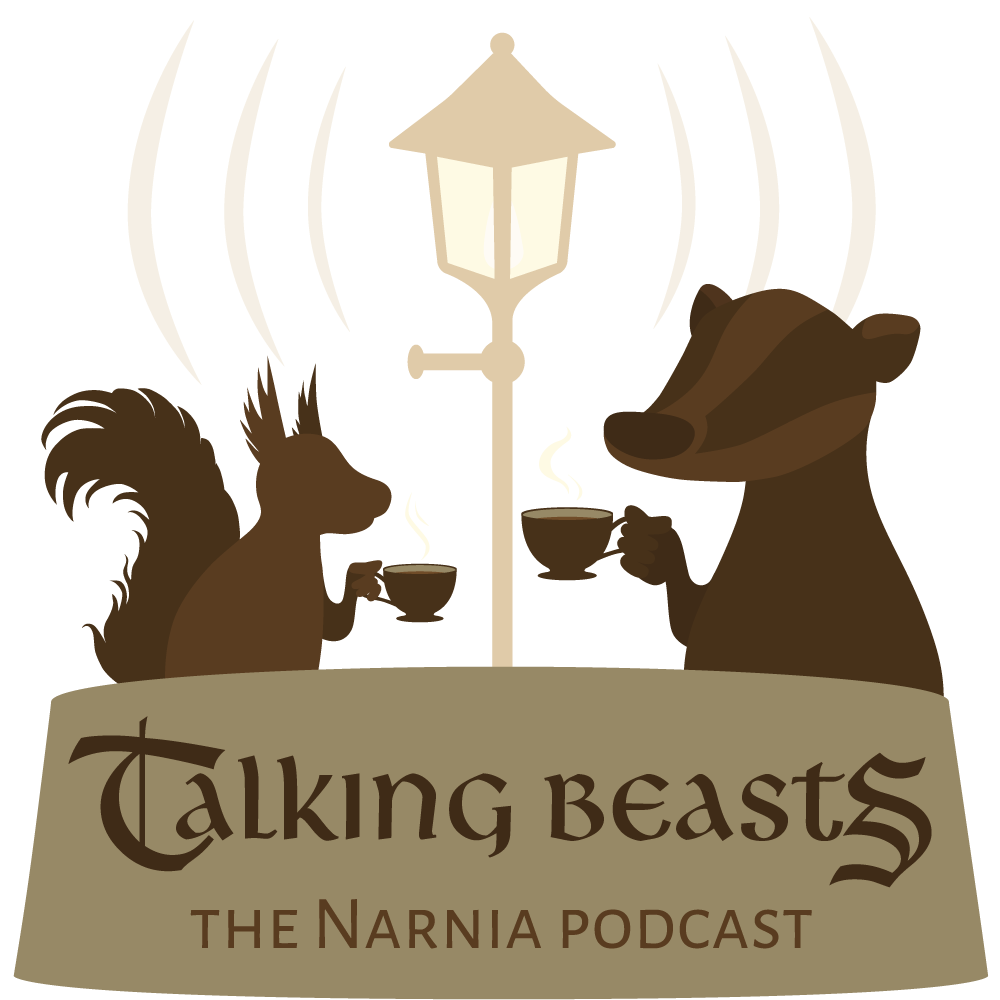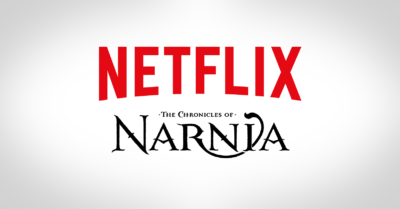Was the First King of Narnia Some Random Guy? | Talking Beasts

Podcast: Play in new window | Embed
In Chapter 11 of The Magician’s Nephew, a cabby and his wife from London are informed they will be the first king and queen of Narnia. Why does Aslan do this and how does it work for the narrative? Listen to the discussion and post a comment below!
Topics covered:
- Humor in this chapter
- Talking beasts unable to understand Uncle Andrew
- Aslan accusing Digory
- Frank and Helen the first king and queen

Watch the post-show chatter.






I almost think that an adaptation of this book would introduce Frank and Helen before this scene. But, I kind of like that we don’t know much about them in the book.
I actually wrote a fic from Helen’s pov… it’s not published anywhere i just have it on a doc but she is never talked about at all
To answer your question, no, he was not “some random guy”. Aslan knew him and trusted him. Also, in an adaptation of the book, maybe they would wait nearer to the end when we know Frank and Helen longer to announce they will be King and Queen.
Great discussion! You know, I’ve never really been bugged by the lengthy scene between the animals and Uncle Andrew or a randomly introduced character becoming king. That’s partly because I don’t see the former as a digression from the main plot. It felt like seeing Uncle Andrew get his comeuppance. To be fair, he’d been getting that comeuppance for a while, so you can argue we didn’t need this, and some readers might find it overkill. But it makes me laugh. I also wasn’t wanting the plot to get back to Jadis because I’d kind of felt like her story had ended with her running off. (After all, Digory and Polly were trying to get her out of our world, and they’d succeeded.) And, anyway, it felt like the book had been easing into a new section of the plot for a couple of chapters. I don’t see how it’s more random than the deep magic being introduced in one of the last chapters of The Lion, the Witch and the Wardrobe and then being crucial to the climax. Before that, there was nothing to indicate that the White Witch was someone with an official role in Narnia (“the Emperor’s hangman”) who went rogue.
I do think though that it would be hard to make the scene with the animals and Uncle Andrew work in a movie from a pacing perspective. It also has a great deal of slapstick comedy and that can come across as stupid. I remember the Radio Theatre adaptation cutting this scene and just having Andrew summarize it for Digory and Polly when reunited with them. I understand cutting this part, but I’d encourage Netflix, assuming they ever adapt this particular book, to try to include it.
I always assumed that Uncle Andrew was just so terrified that he couldn’t speak properly. (And remember that animals might know about dogs but not “doggies.” That word might confuse them. 😉 ) Also, correct me if I’m wrong, but none of the humans talk to him after this point, so it never bugged me how they understood him. Maybe they didn’t.
I mentioned this in a comment on an old episode, but the character of Frank reminds me of Joe Gargery from Great Expectations. I adore that book! (I’m actually part of an online reading group that’s going through it now. Google Dickens Club and you’ll find us.) Of course, I should really say that Joe Gargery reminds me of Frank because I read The Magician’s Nephew before I read Great Expectations but saying it the other way around feels more natural in this context.
I think the reason I can buy Helen just being OK with being whisked out of her world to spend the rest of her life as a Narnian queen is that the book really emphasizes that she and her husband are unhappy in London and really belong somewhere else. It’s going to be vital for an adaptation to sell that idea.
You know something else that’s never bugged me but apparently bugs other people? Photorealistic talking animals. I don’t think I’ve ever seen a movie, whatever technology it used for the effect, where they really jarred me after the first few scenes. I mean, I theoretically get that since we see animals in real life all the time and we see that they can’t talk, it looks really weird when they do onscreen. But, eh, I personally get used to it really fast. (Also, many cultures around the world tell stories about talking animals so it can’t be that hard to imagine.) Maybe I’m just really good at accepting the central premises of stories. I never had a problem with the talking animals in the Narnia movies (though I agree that the CGI for the fauns’ legs was better.) The flipside of that, I guess, is that I’m not as impressed with the talking animals that impress some other people. Like I remember when the 2016 Jungle Book movie came out, everyone was saying how the talking animals looked and I thought they didn’t look any better than those in the Narnia movies. If anything, I thought the Jungle Book’s animals looked a little too shiny and fake compared to the Narnian ones. (If anyone reading this is a big fan of the 2016 Jungle Book, please don’t take offense. I mean this to praise the Narnia movies, not to criticize others.)
I’d like to make it clear that I love the art of animation. In fact, on my blog about adaptations, I started a whole series just so I could write about animated movies that aren’t necessarily adaptations of anything. But I don’t want what will probably be the only adaptations of Narnia I see in my life to be animated. It just wouldn’t feel magical to me. Actually, no, the problem would be that it would be too magical. Since drawings or computer images or clay figures coming to life is magical in itself, it wouldn’t really strike me as magical to see, say, an animated Lucy going through an animated wardrobe into an animated snowy wood. I’d expect things like that to happen in a cartoon. I’m not saying it couldn’t be beautiful. I’d be eager to see a totally animated Narnia adaptation…after I get photorealistic looking ones of every book in the series.
Normally, when podcasts about Narnia try to make everything, even scenes that exist mainly as comic relief, have some deep philosophical meaning, it makes me roll my eyes. But this podcast was actually able to talk about serious themes in the incident of the babylike talking animals interacting with the incoherent Uncle Andrew and make it sound interesting rather than forced and pretentious. Way to go, guys! That’s one of the things I love about Talking Beasts.
@Caspiancrown, hmmm. How would they justify bringing Helen to Narnia then? The whole reason Aslan summons her there in the book is that Frank won’t stay without her.
It feels appropriate, both as a story detail and as a relatable part of life; Ordinary people who became great people were not born superior to other people. They were called (more specifically, by God) to greatness… and they said yes. Forsaking much of their previous lives.
Sure, the First King of Narnia was just some random guy. But also not. He ended up in Narnia partly because of his love for his horse, and his bravery in the presence of the witch who scared other passerby’s, due to her violence. He already showed himself to be a honorable man back in London, so it doesn’t seem far fetched that Aslan was calling him to Narnia at the same time as the witch was closing in on it.
A real world analogy would be this: You could say Saint Joseph was a random guy, and in a way, he was. Just an ordinary Jewish man who happened to live in close proximity with Mary mother of Jesus. However, Joseph WAS called to the highest calling a husband and a father could be called for. All because he was at the right place at the right time. Joseph was a man who said yes.
Also I will add. I don’t believe that any one person (ordinary, born with sin) is destined to fulfill a “prophecy”, a responsibility only they alone can undertake. I think that idea is borderline egotistical.
But if Frank and Helen hadn’t accepted, Aslan would have let them go home, and probably would have called another couple to Narnia, and because Narnia is so wonderful, the likelihood of the next couple accepting the call to rulership would have been VERY high.